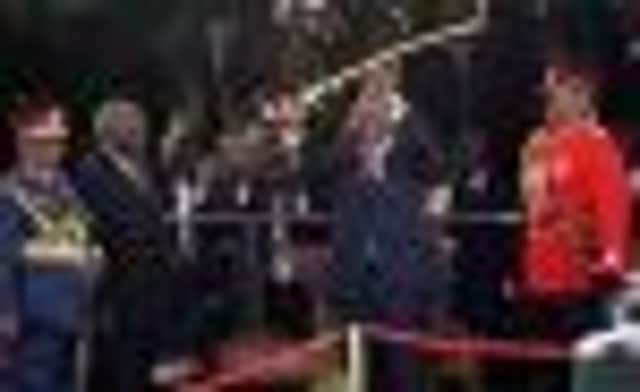Kenyatta made Kenya’s president: West face dilemma


However, his ascendancy to power presents the West with a challenge: how to deal with an African leader indicted by the International Criminal Court (ICC) in the Hague.
Cheered by tens of thousands of people at the ceremony yesterday, Uganda’s president praised Kenyans for rejecting what he called the court’s bid to sway the vote by “blackmail”.
Advertisement
Hide AdAdvertisement
Hide AdKenyatta, son of Kenya’s first president Jomo, is charged with crimes against humanity for orchestrating intercommunal violence after the last presidential election five years ago. He denies this and has promised to work with the court to clear his name.
When, prior to his election, the United States and European powers said they would only have only “essential contacts” with those indicted by the court, some of Kenyatta’s aides accused them of trying interfere in the result.
Now the West must balance that policy with its wish for close ties with Kenya, seen as a vital ally in the regional battle against militant Islam. Any slip-up risks opening more space to China and other Asian powers already gaining both influence in Africa.
“I assure you again that under my leadership, Kenya will strive to uphold our international obligations, so long as these are founded on the well-established principles of mutual respect and reciprocity,” Kenyatta said after taking his oath.
Those remarks may reassure western powers who have urged him to co-operate with the court. Western diplomats said they would take a “pragmatic” approach.
The peaceful transition of power has already helped rebuild Kenya’s reputation as one of Africa’s most stable democracies, after the violence five years ago, when 1,200 were killed.
Analysts say the ICC row may have won votes for Kenyatta.
Ugandan president Yoweri Museveni told the ceremony in a Nairobi stadium: “I want to salute the Kenyan voters on … the rejection of the blackmail by the International Criminal Court.” He added that “the usual opinionated and arrogant actors” had tried to use the ICC to “install leaders of their choice in Africa”.
America and European powers sent ambassadors to Kenyatta’s inauguration, also attended by a dozen African heads of states, as well as prime ministers and other top officials. China and India, neither a signatory to the statutes that set up the ICC, sent senior government officials.
Advertisement
Hide AdAdvertisement
Hide Ad“(Western powers) find themselves in a very difficult position,” said Kenya expert Daniel Branch at Warwick University. “My sense is everyone will find some accommodation.”
Many Kenyans hope Kenyatta will now deliver on a promise to be a president for all and not just work for his own ethnic group,.
“I will lead all Kenyans,” Kenyatta said, outlining policies that ranged from job creation to improvements to infrastructure to providing laptops for school children.
Kenyatta, a 51-year-old former finance minister, campaigned heavily on his ability to deliver faster economic growth and help swathes of poor in the nation of more than 40 million.